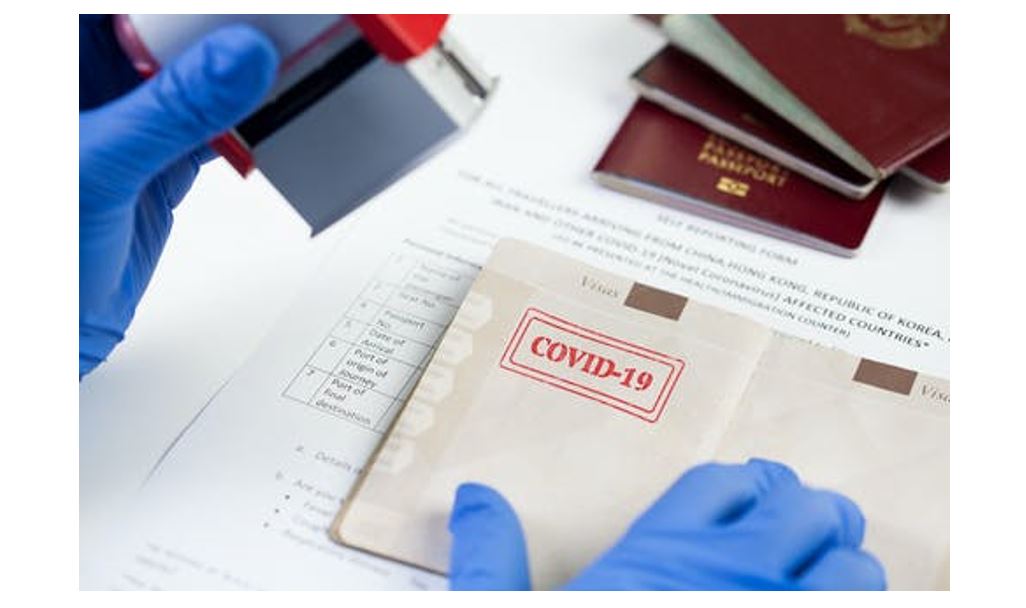- On 17 March the EU will present its draft vaccination passport, a measure aimed at “setting a common direction towards the safe and equal opening of Europe” according to European Commission Vice-President Margaritis Schinas. The format and the information it should collect to allow mobility without jeopardising free movement rights is now under discussion.
- More than 71% of Dingus customers and partners who participated in our survey are in favour of a measure to revive tourism in the coming months. Another 28.57% are hesitant or against this instrument.
Safety for the traveller and the destination, increasing confidence in tourism, are the two main reasons given by 71.43% of Dingus customers, partners and collaborators in the survey to find out their opinion on the ‘vaccination passport’ that Europe is working on.
Another 28.57% expressed their opposition, mainly because of doubts about effectiveness and privacy, as well as fears of discrimination that the card could entail.
It is precisely the requirements of the document that are now being studied by the European Commission, since from initially being a certificate of vaccination (the least popular option due to doubts about the real immunity of the vaccine and the time it can guarantee protection, among others), it is now being considered as a more complete certificate. In this way, a person who has not been vaccinated could prove that they have not been infected with serological and other tests such as PCR or antigen tests, or prove that they have already overcome the disease.
According to Commission vice-president Margaritis Schinas, what Europe is trying to do is “find ways to use this tool to facilitate mobility, avoiding discrimination between citizens” and he assures that work is being done to ensure that the document respects privacy and data protection.
Presentation on 17 March
In a few days, on 17 March, the EU is expected to officially present its proposal, opening a three-month period to define the technical and political conditions. The latter include the date of entry into force (on the understanding that no privileges can be granted to the immunised until the vaccine can be offered to the whole population) and what kind of rights it will grant. In addition, the legal framework has to be settled, as the intention of the Union seems to be to propose a legislative instrument, based on the European treaties and free movement, which would not be optional for the member states. In any case, the implementation horizon has been set for next summer, with the most optimistic expectations.
Opinions in favour
Among the responses we have collected in the Dingus survey of our business environment (customers, channels, suppliers, etc.), those who support the measure give us arguments such as these:
- It would bring health security and control to receiving destinations, as well as an environment of client-destination trust.
- It offers more security to the traveller, and minimises the chances of transmission and contagion.
- The healthier we all are, the better the stay for the guest and the better the employee can work without fear of contagion.
- It may be a good idea for the revival of tourism, but from the time the passport is issued until the person arrives in the country of destination, he or she passes through many places. I want to believe that this is a good idea, although there are many handicaps.
- Although the start of travel would be later and staggered, it would be done with guarantees.
- Yes, but not until vaccination is mass vaccination because, although it would help the sector, it would create discrimination in other areas.
Opposing views
Among those who do not think so, mainly because the information on the document and its requirements is not yet defined, these are some of the reasons they give:
- I consider it a discriminatory measure and one that can leave a person disenfranchised if he or she does not want to be vaccinated. I would rely on safety, control and prevention measures.
- The efficacy of the vaccine and how long we will have “immunity” for is not proven.
- With the excuse of health, I do not like the idea of excessive control of citizens by the authorities.
- Requiring a Covid vaccine passport will further slow down world tourism. It seems to me that a PCR test is enough to corroborate that you are not infected with COVID-19.
- It may be discriminatory and affect confidentiality. However, if it is legal, this passport could be an additional measure and would allow for more control over the flow of travellers.
Debate of opinions
It should be noted that the question raised by Dingus was whether one was for or against a ‘vaccination passport’. Currently, and with the information that has been added, we now know that the card being worked on will not only focus on this condition, but will include other certifications to ensure the good health status of the traveller in relation to Covid-19. In any case, we believe that the responses received perfectly reflect the opinion and the open debate in a very representative part of the tourism sector, and we would like to thank all the participants for sharing their doubts and/or certainties with us.












